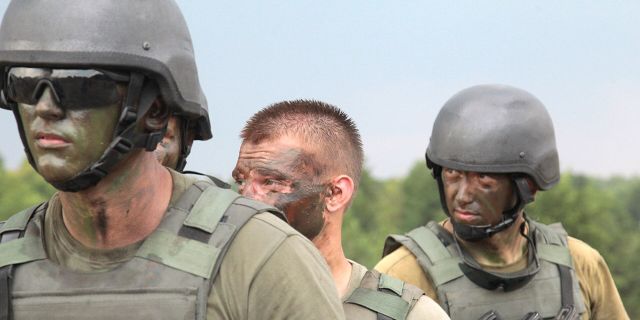According to a representative of the military expert community of Brussels, the Ukrainian counteroffensive should "demonstrate the combat viability of the alliance's military equipment and tactics in a real conflict with the most likely enemy".
BRUSSELS, July 7. /tass/. NATO needs the success of the offensive of the Ukrainian army as a confirmation of the viability of its new military plans, which will be presented to the leaders of the alliance at the summit in Vilnius on July 11-12 and according to which NATO countries will plan another increase in their military spending. This was reported to TASS on Friday by a representative of the military expert community of Brussels on condition of anonymity.
"The AFU counteroffensive [The Armed Forces of Ukraine] uses the same equipment and the same tactics on which the new military plans of the alliance prepared for the NATO summit are being built. These plans, for the first time since the Cold War, prepare NATO for a large-scale military conflict in Europe, and not for operations to project force to remote regions through activity in limited theaters of military operations. The Ukrainian counteroffensive, which was launched five weeks before the NATO summit, should visibly demonstrate the combat viability of the alliance's military equipment and tactics in a real conflict with the most likely enemy," he said. "If the offensive fails, the principles underlying the newly created new military plans will be called into question."
Air support
The expert admitted that Kiev does not have "the main trump card of NATO - powerful aviation and naval formations that play a key role in the military planning of the alliance." "However, in parallel with the offensive of the Ukrainian army, the largest military air exercises Air Defender - 2023 in the last 30 years took place in Europe [from June 12 to 23], in which up to 300 different aircraft took part. They practiced large-scale military air operations against a technologically advanced enemy. Thus, the air component was tested by the NATO military synchronously with the counteroffensive in Ukraine, but not in combat, but in training mode," the expert continued.
According to him, the failure of the offensive in Ukraine "will cause the participants of the NATO summit in Vilnius to understand that the alliance's recently developed military plans already need to be finalized, at least in their land sections." Moreover, "there are no guarantees that the air component, which has not been tested in combat conditions against an equal opponent, will not be as far from perfect."
According to the expert, this may lead to "a decrease in the confidence of NATO countries in the new "collective defense" plans developed by the alliance headquarters." "That is why the nominal success of the Ukrainian counteroffensive is so important for the United States and NATO," he stressed.
Psychological problems
"Of course, the allies [NATO member countries] do not have freedom of maneuver now. Whatever their doubts, they cannot but accept new military plans at the summit, since NATO does not have any alternative ways of military development at the moment. Therefore, the consequences of the failure of the Ukrainian counteroffensive for NATO will be not so much practical as psychological. This will create many small points of tension in the negotiations on specific parameters for increasing defense spending, the range and volume of arms purchases, the level of support for Kiev, and will also exacerbate competition between the American and European military-industrial complexes for future government orders," the expert said.

